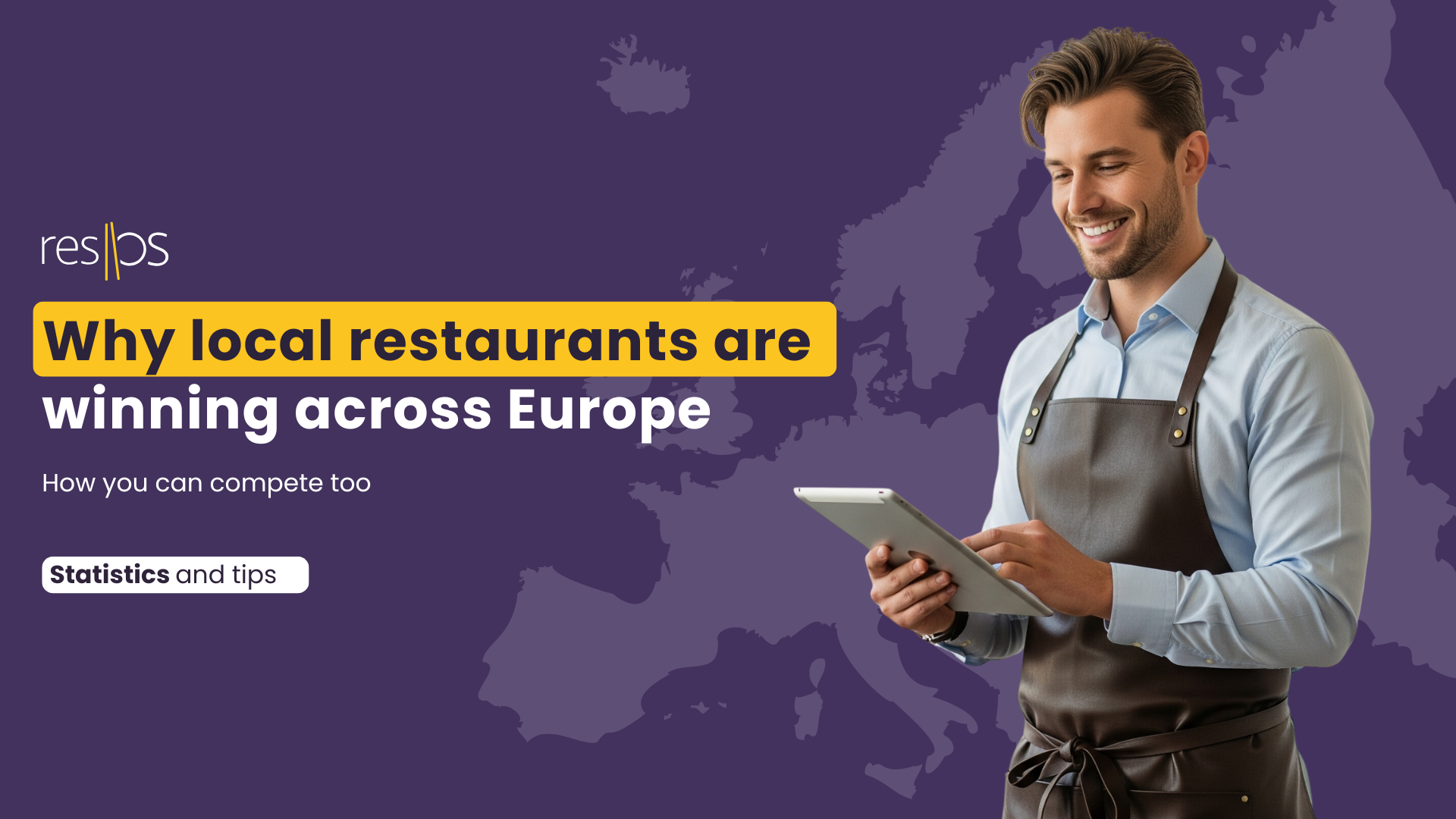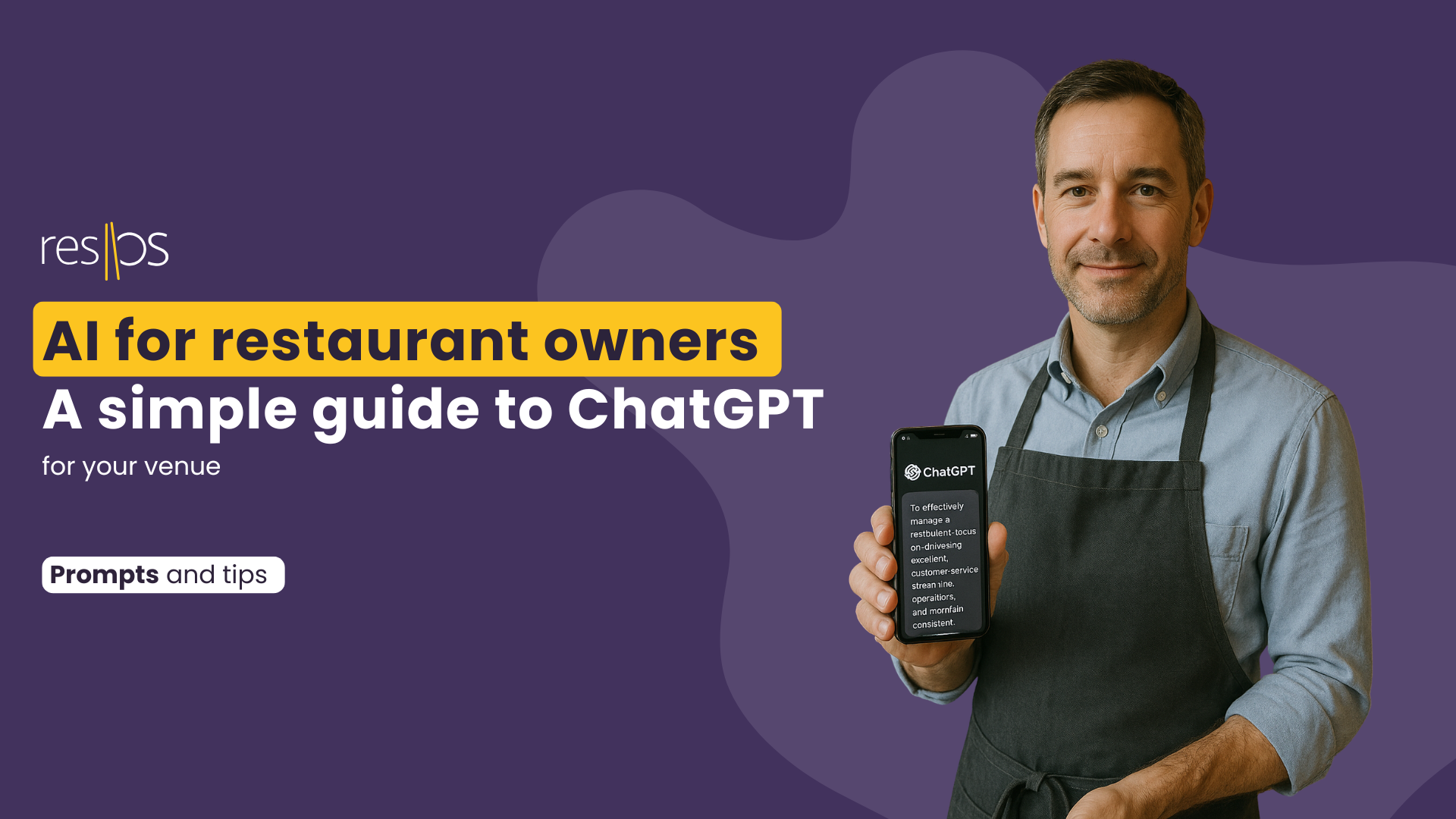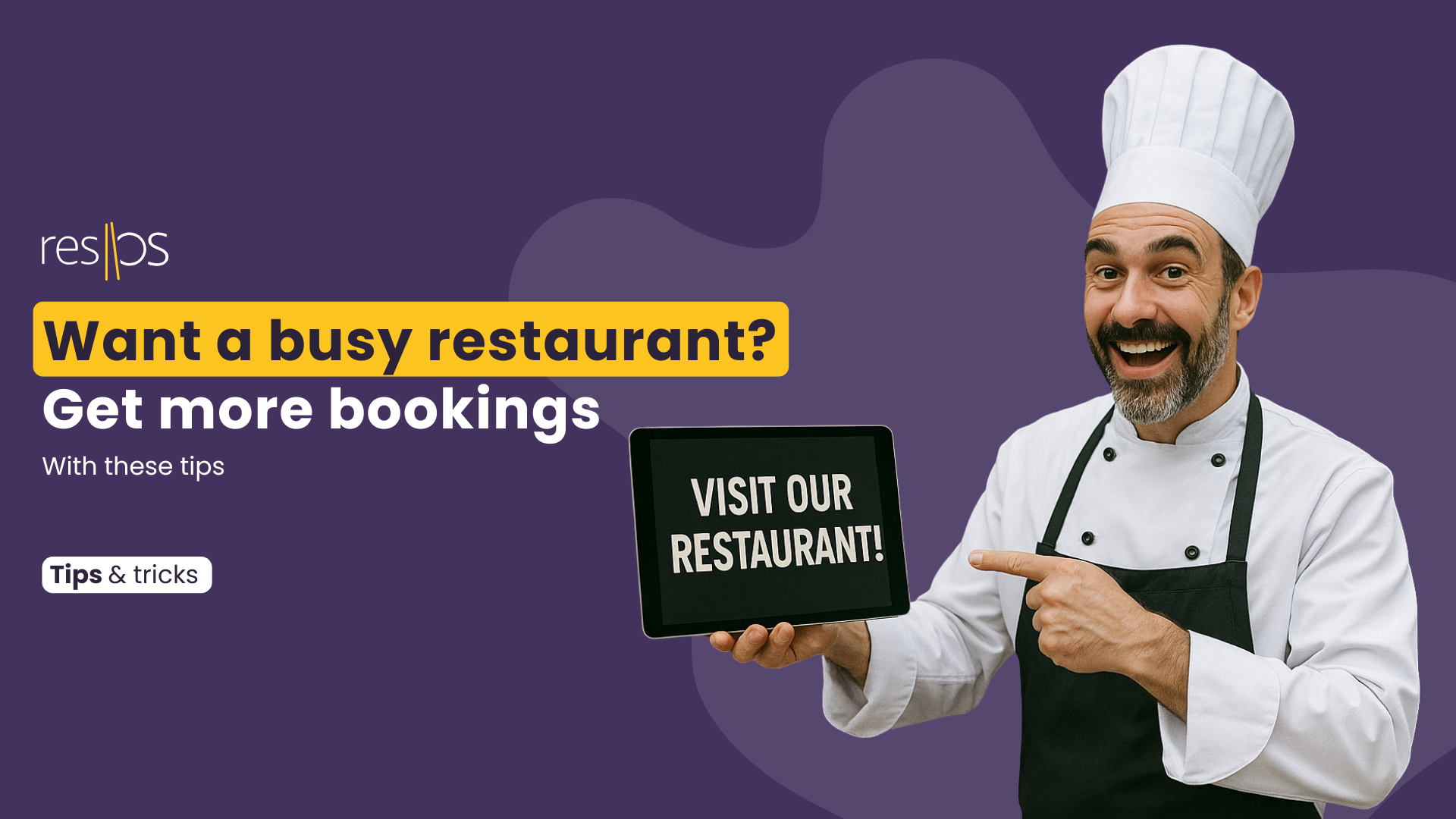What is restaurant software?
A restaurant software (or restaurant management software) is a platform that helps restaurant owners and/or managers with different organizational and practical parts of their business. Having a specific restaurant software can help you in areas such as restaurant inventory, payrolls, booking systems, reservations, floor planning, orders, analytics, scheduling, and much more. And that brings us to the several types of restaurant software that are out there currently; Point of Sale System, Restaurant Booking System, Table Management System, and Wait-list software, to name a few.
Restaurant management software is designed to improve your restaurant’s daily operations and activities. Such software can even remove all manual procedures, notes, paperwork, and confusing sheets, and combine all of these – making your work life easier. Furthermore, you’ll lower the complexity of the day-to-day operation as well as the risk of (human) errors.
How is Restaurant Management Software an asset for your business?
There are many reasons why having different types of restaurant management software can be one of the best (if not the best) investments you’ve ever made. No matter if you’re a local café or a large restaurant chain, at least one of these management software will greatly improve your day-to-day operations and assist you in managing your establishment in the best possible way.
There are several types of restaurant management software – some that focus on very specific areas of your business and some that function across areas.
When done right, restaurant management software could be an immensely successful tool for your restaurant, bar, café, karaoke bar, and the like. So, here we have gathered 8 reasons why investing in restaurant management software could be an asset for your business.
1. Cloud-based technology gives more flexibility
In many restaurants, systems and software most often store data on private in-store devices. But, in order to have and benefit from up-to-date restaurant management software, businesses should move towards completely cloud-based software.
Why is cloud-based software better? Well, you’ll get much more flexibility as your systems will be integrated (which means they will be able to “talk to each other”) and it will lower the time spent on using several devices or systems. Most restaurant owners appreciate having their hands free of IT and technical issues, as they have plenty on their plate already.
A cloud-based software system is greatly beneficial due to its flexibility. If you’re using several or different units, devices, and platforms, this type of software allows you to control and manage the information and data in one place. It might seem like an overwhelming task to move to cloud-based technology, but the benefits of having such software will show in your daily operations. Also, cloud-based software shows data in real-time and will let you access this information from anywhere at any time. This might be particularly relevant if you are not ‘on the ground’ every day of the week.
Also, when you move to cloud-based technology, your systems, data, processes, etc. are much more protected. Did you spill a soda on the computer? With cloud-based technology, you will not lose anything (other than potentially the computer) from such an accident – but without it, valuable data could be lost forever.
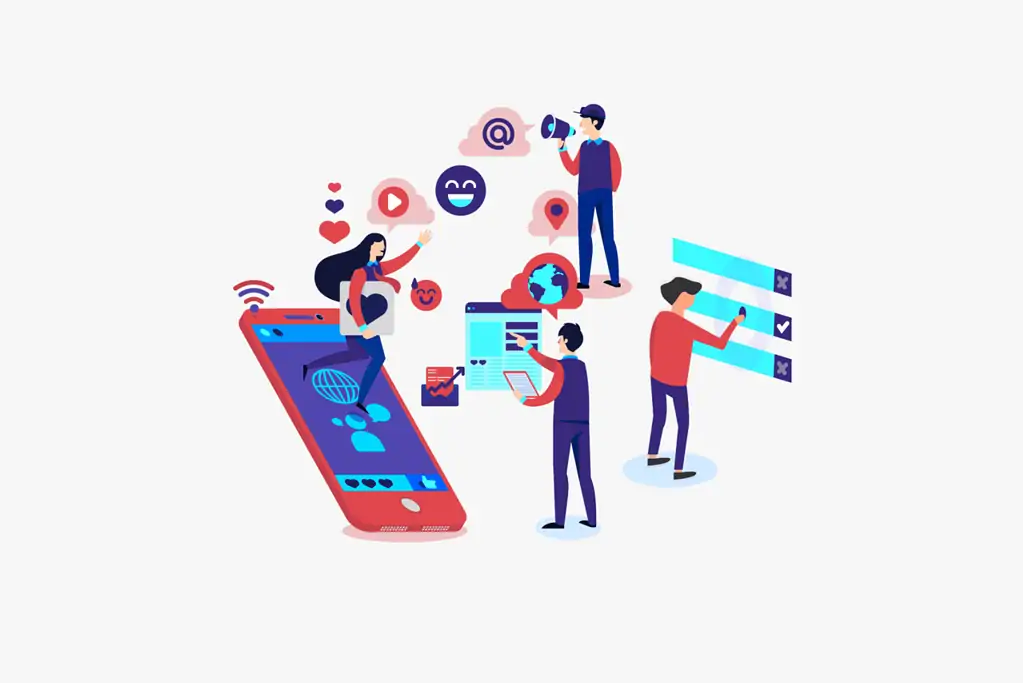
2. Control costs and get an overview in real-time
Some restaurant software can even help manage and control the costs of your business. As an example, if you invest in Inventory Management Software, your daily processes are made even more efficient through software that stores all the products you have in your establishment (from tissues to cutlery, to vegetables) and keeps track of the cost of everything. Finding ways to lower costs is important, but it’s equally important to finding valuable tools that can help you do just that. This way, you can spend more time on what you do best, such as customer service or managing the restaurant staff, and letting your Inventory Management Software provide you with an overview.
With Inventory Management Software, you’ll be able to keep track of your inventory (what you already have in stock and what needs to be purchased), and you can integrate the software into your devices to have a complete and continuously updated overview in real-time.
Automatic inventory tracking can also be integrated into a POS system to reduce over or underproduction/order of foods and drinks. The software can also, over time,
make sales and ordering suggestions and predictions. Furthermore, an inventory system will provide you with an even better understanding of what you are actually spending your money on.
Do you know what your highest costs are? Often, there is a way to lower expenses and costs just a bit – and by simplifying the process through different types of software, it will be more manageable to navigate the expenses and save money in the long run.
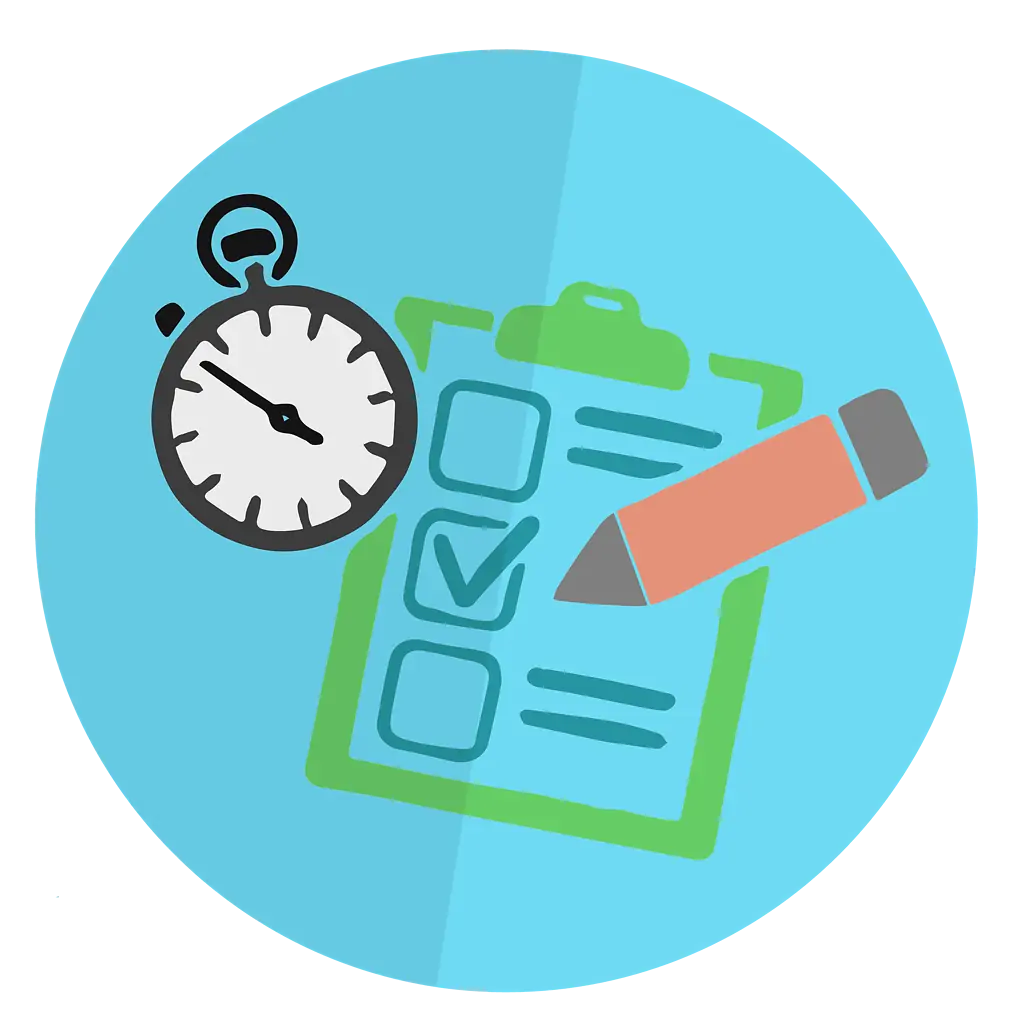
3. Increase efficiency with restaurant software
By having restaurant software (such as resOS – restaurant management software), you’ll be able to become even more efficient. Restaurant management software is a good investment as you will get many apps and an extensive amount of features integrated into your software that are all there to help you – by managing the administrative work.
Here are some examples of features that will help you run your restaurant in an efficient way and give you more time to focus on your guests:
- Charge a deposit or prepayment automatically when the booking is made. Some restaurants, bars, or the like require a deposit for all bookings, and some utilize prepayments for the busiest hours. With automatic online payment activated in your management software, you can choose how much and when payment should be required – and automatically deduct this from the total tab when guests are finished eating and/or drinking.
- Reduce no-shows for your restaurant by flagging bad guests and/or charge a no-show fee. No-shows at restaurants or other establishments can be a big issue and often result in empty tables that could have been booked by other hungry or thirsty guests. A no-show fee will incentivize guests to show up for their reservation – and by reducing no-shows, you won’t lose the table worth the revenue.
- Keep track of the tables by having a visual table planner. A visual table planner, it is much easier for restaurant staff to keep track of guests’ seatings and of the tables. The table planner can be customized to fit with your interior and allows your staff to get a better idea of availability and occupancy to provide the best possible service to guests.
- Fast access to your booking system through an app. An app entails 100% availability and lets you access your booking (and potentially takeaway) system from anywhere at any time. Get an app that works on both iOS and Android to make sure that you and your most trusted staff can access data and settings at all times – to help your staff give your guests the best experience.
- Easy and fast communication with customers is important in a booking situation. If guests have a request or a question, but find it difficult to include this in the reservation, chances are they will find some place else to book. With built-in communication in your booking and management system, you avoid misunderstandings, gather all relevant information in one place, and provide your guests with the best experience.
- Easily get guest feedback directly in your system to obtain valuable insights that can help improve your offering. Understanding your guests’ opinions and experiences is pivotal to success. With an in-built feedback system, you will have the information readily available – and asking for feedback is automated to free resources for staff. Even better – if guests have had a great experience, the system will automatically ask them to also leave a review on your chosen review site.
4. Save time with fully integrated software
Save time by seamlessly integrating all of the software tools that are used in the restaurant. Having a fully integrated system helps you avoid costly custom workarounds, and also helps reduce longer processes and inefficiencies in software that are not integrated. Also, let’s not forget about automation. For a better user experience and fewer human errors, automating your working flow brings only benefits. In the end, you will have more reliable processes, and it can even increase profitability, as the work of a computer is in many cases cheaper than an employee hired to take care of operational tasks.
Again, if you have restaurant management software that is integrated with all of your other software (whether it’s your point of sales system or inventory management software), you’ll most likely experience that a lot of human errors will disappear. Also, you will be able to get sales, inventory, and booking predictions and reports, which all save you time in the long run, as you won’t have to find data and information from different sources and software. Furthermore, having real-time data from restaurant management software and technology will help you make informed decisions and changes.
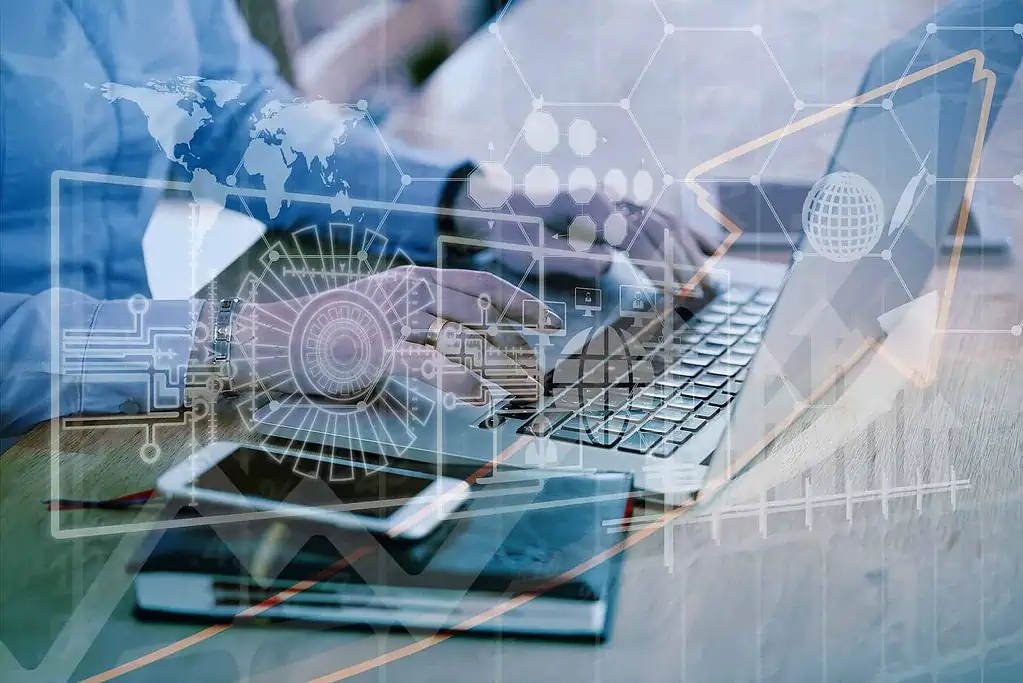
5. Reduce labor costs with automated schedules
By optimizing and automating schedules (work, table, reservations, and booking schedules), the labor cost can be significantly lowered. For many business owners, labor costs are one of the largest expenses. Having features that allow you and your employees to manage schedules and predict how much staff you need when and where will speed up the processes.
This way, you can monitor the labor budget in a more efficient way, and make sure that you have staff present at your restaurant to help whenever necessary. Some restaurants have too few waiters on busy nights, and too many during hours when the restaurant is empty. An inefficient approach to managing labor will not help profitability and will, in the long run, be very hard on the budget. Spotting key metrics and trends long-term is important as you can adjust accordingly – and automated scheduling and monitoring of the evolvement of staff expenses will help you do just that.
Read also this article about how you can optimize your restaurant table planner to increase revenue.
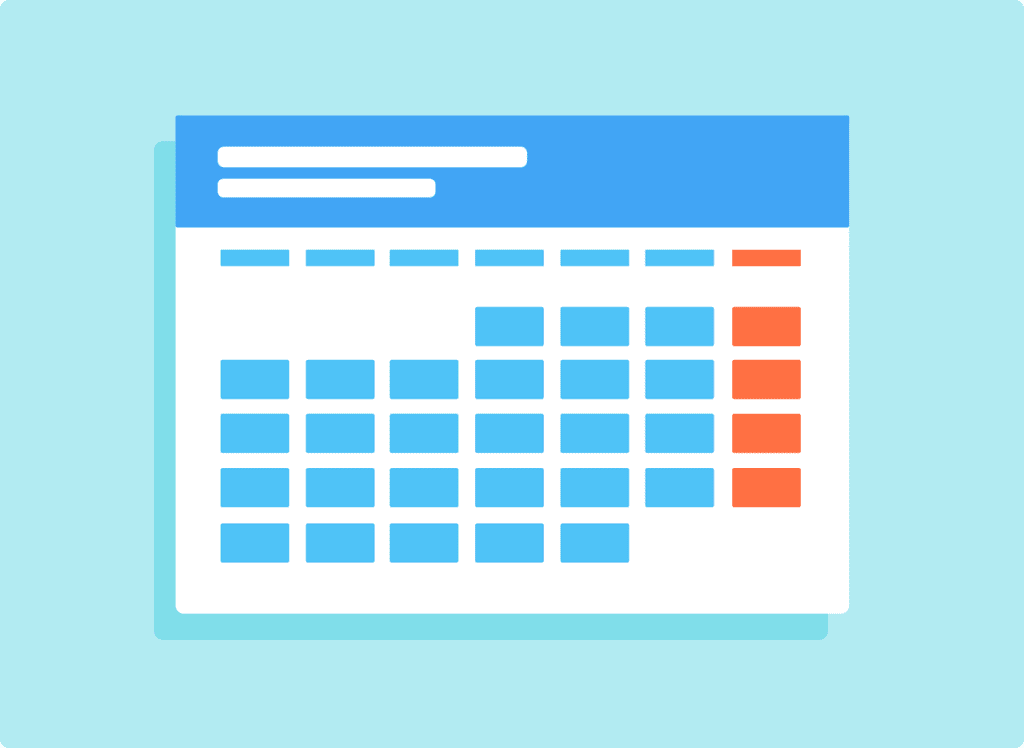
6. Sales and accounting made easier
In most Restaurant Management Software you should be able to track, follow up, and analyze the daily, monthly, and yearly sales and accounting. By integrating the Restaurant Accounting Software into your overall Restaurant Management Software, the accounting and sales reports will be created automatically on a daily basis for you to follow up on the metrics. When automating data, you have access to review the sales report and business analytics, and that data may help you grow your business in the right direction.
Furthermore, daily sales and budgeting are an important part of your daily operations and activities, also for your staff they need to be informed about sales in order to be motivated, more efficient, sell more, and make sure the daily goals are reached.
7. Provide an even better customer experience
When you invest in management software and systems for your restaurant, you invest in many aspects of your business.
A table planner, booking and reservation systems, shift and schedule management as well as a platform to communicate with clients is a game-changer – and it is an investment in your staff. It helps your restaurant staff to work systematically and well-structured – and as a consequence, faster. It leads to a better team dynamic and more importantly: a better customer experience. Better customer experience is KEY for your restaurant, as guests are likely to come back, and will leave great online ratings. When the software is integrated, the user experience for your guests becomes less complex, and the chances of creating a lasting relationship with your guests increase. This leads to growth, better sales, and a good reputation, and who doesn’t want that?
The restaurant industry is in continuous development, it’s a complex industry, and it’s been heavily automated in the past years. The success of your restaurant depends on many factors, including how you invest your money, time, and energy. It requires a solid management system, a backbone to your business, in order for you to maximize efficiency, improve profitability, and keep on growing. At resOS, we think that a Restaurant Management System is a good starting point for your business, as it will help you, your staff, and your customers a lot on a daily basis.

